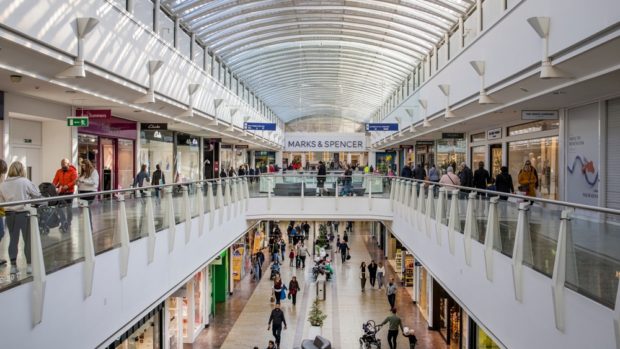
Cash is alive and kicking! With 90 per cent of people picking cash as their most widely used payment method, and 89 per cent of consumers considering the ability to pay in cash as important for their customer satisfaction, the naysayers and doom-mongers who predicted the end of cash have been found to be conclusively wrong.
This is according to Why Won’t Cash Just Die?!!, a new research report from global CashTech solutions provider PayComplete, surveying 5,000 consumers from the US, UK, Germany, France, Italy, and Spain to uncover the trends, habits, and social reasons keeping cash as a critical part of the future of payments.
Cash Refuses to Die
For years, the headlines predicting the end of cash have painted a picture of its imminent demise. Yet, the reality could hardly be more different. More than two-thirds (69 per cent) of consumers confirm they always have cash on them. The reality for cash is that it remains a payment preference for all ages and incomes, despite often being positioned as a payment method of the past, primarily used by older generations. Digging into the data on income and age found that cash has broad consumer attraction. One in three (33 per cent) cash users fall within the 25-44 age range, and nearly two-thirds (60 per cent) belong to the mid-range income brackets, earning between £19,000 and £63,999.
“All the noise around the death of cash is just that. While digital and electronic payment providers have been quick to kill and downplay the importance of cash in consumers’ lives, our research shows it continues to hold a significant place in the payment ecosystem, customer satisfaction, and in maintaining and strengthening communities,” said Simon James, CEO of PayComplete. “Over half (59 per cent) of cash users believe that the ability to pay with physical money supports the inclusivity of all members of the community. While a similar number (52 per cent) agree that cash will continue to have a prominent place in society for the foreseeable future. Businesses that turn their back on cash risk being seen as undermining local communities.”
Cash is Community
The connection between cash and community is incredibly strong. The research uncovered that many consumers are choosing to pay in cash to aid their communities. Surprisingly, nearly two-thirds (65 per cent) of respondents are aware that shops must pay a fee every time they make a payment using a card or mobile phone, leading to nearly a quarter of consumers (22 per cent) choosing to pay in cash.
Physical money is an even more important lifeline for independent stores actively managing cash flow. Last year 1,915 independent stores closed across the UK, a figure many shoppers are proactively trying to lower by simply paying in cash. On average, over half (57 per cent) of shoppers want to pay in cash to save businesses money. This figure jumps to a phenomenal 7 in 10 (71 per cent) when it comes to smaller businesses, tipping, and personal services, underlining the importance consumers place on cash to aid their local communities.
Simon James continued: “Saving businesses from card processing fees is not the only reason people stick with cash in the community. Our research shows that education and social inclusion are equally strong motivators. In fact, nearly two-thirds (62 per cent) of consumers believe using physical cash helps children develop financial management skills and track their spending. Teaching the next generation about money is critically important. Yet, research from the Money and Pensions Service has found that less than half of children aged 7-17 in the UK have received a meaningful financial education. Using cash as a tool to help educate children can help offset this trend.”
Myth Busting – Gen Z Loves Cash
More myths busted by the ‘Why Won’t Cash Just Die?!!’ report include:
- Cash is only for the old: The idea that cash has an age divide can be well and truly put to bed. When it comes to Gen Z, it was found that they not only used cash but that it was their preferred way to pay, with 29 per cent putting it in first place, pushing debit cards down to second. Aside from Gen Z, cash is the second most popular way to pay for all age groups. In the case of the 25-34 age group, cash and debit cards are equally popular (19 per cent).
- Cash is forgotten: While many believe cash is left in a drawer at home and forgotten about, the reality is very different. Cash was found to play a critical role in many people’s emergency plans. While it is highest amongst the oldest age group (65+) at 82 per cent, even among the youngest age group (18-24 years), 59 per cent said they also always carry cash just in case.
- Gift Cards – the perfect present: With Christmas just around the corner, many businesses will be hoping for big sales from gift cards. While 52 per cent of respondents prefer giving money as a gift card, only 17 per cent said it was their preferred money gift. Instead, nearly three in five consumers (58 per cent) surveyed said cash is the most exciting way to receive money as a gift.
- Customers don’t mind sharing their data: 50 per cent of consumers surveyed feel uncomfortable about the amount of data organisations can access from their shopping choices. Nearly half (46 per cent) are moderately or extremely concerned about businesses collecting their data from card payments.
The Consequences
Cash is clearly here to stay. Not only are new laws like the FCA’s Access to Cash regulations now in place, but consumers actively want to use cash.
Businesses pushing against the tide are in for a rude awakening. Those believing consumers who are denied the ability to pay with cash will pull out a debit or credit card instead are living a fantasy. Less than one in three people (26 per cent) have complied and found another way to pay. Instead, an even larger group of customers (36 per cent) simply walk away without making a purchase.
Businesses that fail to offer cash as a payment option risk losing sales and revenue. Nearly half (47 per cent) of consumers abandon in-store purchases when they can’t pay in cash. Given these numbers, it is hardly surprising that almost nine in ten (89 per cent) people consider the ability to pay in cash important for customer satisfaction.
More damaging still is the perception that comes with failing to offer cash as a payment option. Almost half (47 per cent) of consumers believe organisations that don’t accept cash are putting profits ahead of customer satisfaction. Respondents reported experiencing a range of emotions when denied the opportunity to pay in cash, including inconvenience (54 per cent) to outright annoyance (52 per cent) and, most worrying of all, for those who walked out without making a purchase, anger (16 per cent).
“Retail, hospitality, and leisure and tourism businesses that have implemented or are considering a cashless strategy, especially those that claim to be driven by Environmental, Social & Governance (ESG) principles, need to seriously consider cash in their planning,” Simon stated. “Consumer reactions to those failing to offer cash as a payment method combined with the strong link between cash and social inclusivity will create difficult questions for those looking to go completely cashless.”








Share